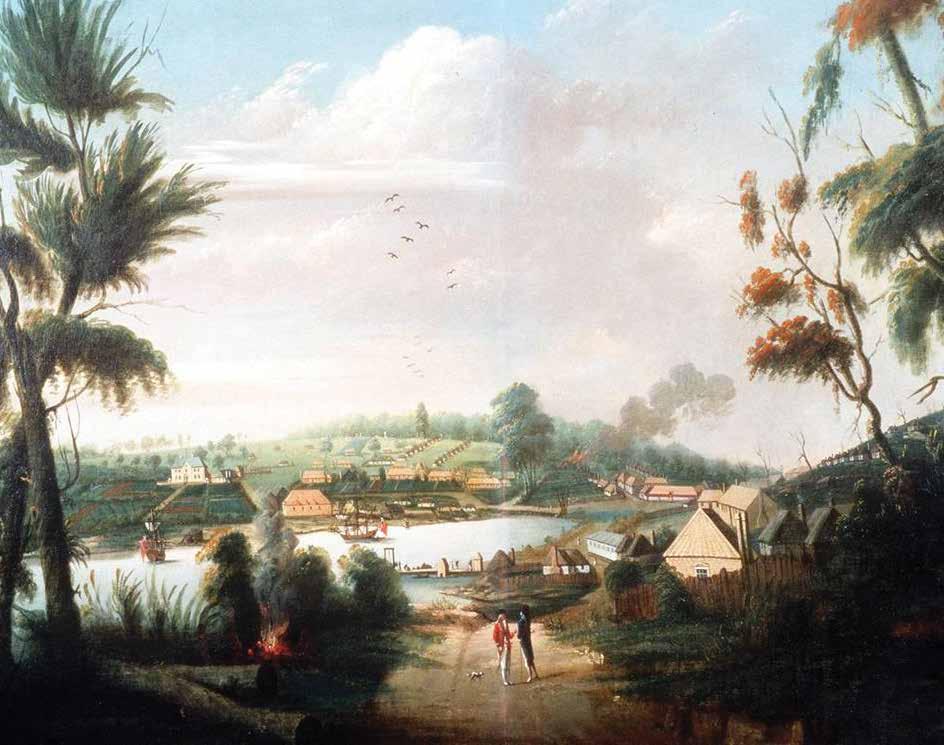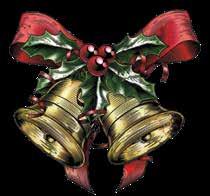
9 minute read
Al Finegan
The First Christmas Jingle Bells, Jingle Bells Jingle all the way Christmas in Australia On a scorching summer's day, hey Jingle Bells, Jingle Bells Christmas time is beaut ….

Advertisement
By Al Finegan By: AL Finegan
What! Only nine days till Christmas. “Just where did the year go?” I hear a collective cry. As the 25th comes closer, so our personal preparations intensify to a frenzy. It is the one day of the year for which many plans must be made, presents purchased, booze supplies of all types stocked up, along with all sorts of “nibbles,” while legs of ham fill fridges all over Australia. Just the mention of the word “Christmas” fills our hearts with joy. It is the joy of the memories of past Christmases and the anticipation of the one almost here. It is the one day when everyone bears good will, even to those we don’t like, or with whom we have a grievance. It is one day that you know nothing untoward, or nasty, will be said. It is also a time for children, whose overwhelming excitement of the day is infectious. It is a day when many invite passing strangers into their homes for a beer. It is a day when all is well in the world. Just 234 years ago, when the first Christmas in Australia was imminent, joyous anticipation was not the order of the day. It was a gloomy outlook, even if indeed they even gave it a thought. It was so terrible, that it could only get better year by year, until it is the wonderful occasion we enjoy today. So, just what was the first Christmas in Australia like? The Christmas Day tradition did arrive with the First Fleet when they landed in Botany Bay, in January 1788. The country’s first celebration of Christmas Day occurred on that same year, on 25th December, at Sydney Cove, NSW, eleven months after settlement. Celebration was not the right description, rather it was an acknowledgement that it was Christmas Day, and perhaps they should try to do something for the occasion. As Christmas approached, the makeshift NSW colony at Sydney Cove was in crisis. The people were starving and living in a crude and lonely collection of huts. “We now have two streets, if four rows of the most miserable huts you can possibly conceive of deserve that name,” a female convict wrote home to England, describing the Rocks area in November 1788. “Of windows they have none ... so that lattices of twigs are made by our people to supply their places.” No news, and certainly no gifts or greetings, had reached the colony from London since the First Fleet’s arrival in January. To emphasise the loneliness, only one ship, the small brig Supply, bobbed in the harbour. The last two merchant ships, the Golden Grove and Fishburn, had sailed for England in November, leaving the tiny British settlement of some 1000 convicts and officers stranded at the end of the earth. It had been a tough eleven months, with 103 deaths, including nine marines, their wives and children, and 94 convicts and convict children. The colony’s first harvest had failed, most of the livestock bought from the Cape had died, been lost in the bush, or taken by Aborigines. Desperately worried that the stored food supplies had become dangerously low, Governor Arthur Phillip had ordered the daily ration be reduced to about a quarter of its original amount. The colonists began to starve to death. Captain Lieutenant of Marines Watkin Tench recorded seeing a man fall dead from hunger right in front of him.
Religion was almost nonexistent in the colony, with just one cleric, Pastor Richard Johnson, to administer to the 1000 souls. In November, he had written to a friend in England that inhabitants of Sydney Cove would prefer, “… the erection of a tavern or a brothel than a church. They prefer their Lust before their Souls, yea, most of them will sell their souls for a Glass of Grog, so blind, so foolish, so hardened are they.” It was likely that a religious Christmas service would be as foreign to most convicts as their new home in the “poor and barren and rocky country,” described by Johnson. He noted that, “Most convicts are practically pagans, with probably half having not attending a church service for at least five years before they became prisoners.” Many were from impoverished London suburbs and cities, where churches had little influence on poor residents, and offered them little in return. Others had likely been employed as household servants and would have worked on Christmas Day. In such dire circumstances, our first Christmas Day in Australia was not destined to be a memorable occasion. Governor Phillip had realised that the colony would remain dependent on Britain for much longer than planned. He was determined to maintain strict rationing, despite a demand for more food to celebrate Christmas Day. He also lamented that as the Day approached, “… the settlers’ shoes were worn out, many of the convicts are now in rags, and that there is not enough thread to repair their clothing.” He declared that both male and female convicts were, “… appearing almost naked as they went to work.” Tench wrote in his diary that two female convicts solved their ragged clothing problem by spending an evening in the company of soldiers to secure a modicum of modesty. He observed that, “Amelia Levy and Elizabeth Fowles spent the night with Corporal Plowman and Corporal Winstead, in return for a shirt each.” Governor Phillip decided that he needed to do something to improve the prevailing low morale for Christmas Eve. For some months, the colonies rum supply had been locked up and guarded day and night. He ordered that a half pint of rum per person be liberated from the rum storage and issued to all inhabitants after their day’s work on Christmas Eve. As the rum flowed, control over the volume distributed became somewhat lax. Tench commented that, “Unruly parties continued all night with much interaction between female convicts and soldiers.” Judge Advocate Captain David Collins recorded that Christmas Day began at dawn with a religious service officiated by Pastor Johnson, although attendance was less than the good Pastor had expected. Collins wrote, “At the openair service celebrated under trees soon after sunrise on Thursday, 25th December 1788, Pastor Johnson also conducted a wedding, and baptised infant Sarah Eggleton, daughter of convicts William Eggleton and Mary Dickenson. They were one of 15 couples married in a joint ceremony weeks after the First Fleet’s arrival. Sarah was one of 33 babies already born in the colony.” Collins went on, “… that after the marriage and baptismal proceedings were completed, Johnson preached a sermon adapted to the occasion ... and in the evening, the officers of the settlement were entertained at dinner by the Governor.” When he later reported that, “Christmas Day dinner was observed with proper ceremony with all toasting King George III and his family,” he grossly overpraised the celebration. After the Loyal Toast, Pastor Johnson spoke briefly saying in part, that, “I am bereft that no Church is yet begun, and I am afraid, scarcely thought of. Other things seem to be of greater Notice and Concern … almost all souls in this dastardly place, with but few exceptions, are heartily sick of the expedition, and wish themselves back safe in old England.” All accounts of Christmas lunch with Governor Phillip were somewhat grim. Collins later recorded, “Concerning that dinner, the least said the more generosity.” The convicts’ and soldiers’ Christmas Day dinner was a generally sombre affair, served after a normal day’s labour. Without ceremony, they were fed their usual ration of a slice of bread, a small portion of salted beef, and yellow peas. There was however, one small piece of entertainment during dinner. A woman convict had been found guilty a few days before Christmas of receiving stolen property from a convict thief. She was paraded in front of the assembled diners, and told that, as it was a holyday, she would not receive the more severe punishment she deserved. Instead, she was stripped, her hair shaved off, then clothed in a rough canvas frock, on which was painted in large letters, RSG, which signified, “Receiver of Stolen Goods.” Apart from the rum ration, and the entertainment, the only evident goodwill displayed on the day was extended to convict Michael Dennison, who had stolen a pound of flour from Martha Pugh. Dennison was sentenced to 200 lashes by the whip, but being Christmas, only 150 lashes were delivered. The inhabitants on Norfolk Island enjoyed a better Christmas dinner than their colleagues on the mainland. The Island had been settled by a party under the command of Lieutenant King just five weeks after the First Fleet arrived in Sydney. Its settlement was part of Governor Phillip’s instructions to prevent its seizure by any other European power. Farming on Norfolk Island was intended also as a way of supplementing food supplies in Sydney. Of Christmas day 1788, Philip King wrote, “The 25th, being Christmas-day, it was observed as a holyday. The colours were hoisted at sun-rise. I performed divine service; the officers dined with me, and I gave each of the convicts a half pint of rum, and double allowance of beef, to celebrate the festival. We killed 2 Hogs belonging to the Crown and issued a good portion to each person and as our Crop of Wheat has been a good one, gave them 2 lb of Flour each Man and one pound to the Women. The evening concluded with bonfires, which consisted of large piles of wood, that had been previously collected for the occasion.” Lieutenant Ralph Clark, Officer of the Marines on Norfolk, wrote of the occasion, “Fine weather but blows fresh from the Southward and a great Sea Rolling into the Bay which will make a great Surf on the Reef on which there is a great deal at present - this being Christmas day I wish a merry, merry Christmas to all the world - the most poorest person in England will be better off this day than any of us here for they will be able to get a small beer with their dinner to drink if nothing better, and there is not any of us will have anything better but cool water. This will be a dry Christmas - do good Gorgon come and take us away from this place.” Although Australian celebrations have been observed every year since that first wretched Christmas Day, it was not until well into the 19th century that Christmas Day was officially designated to be a national public holiday in our country. We are so blessed now, as Christmas Day celebrations are a wonderful time of family, friendship, and plenty.
I wish all my readers a Merry Christmas, I hope you all have a good one, and much better than the Australia’s first.








